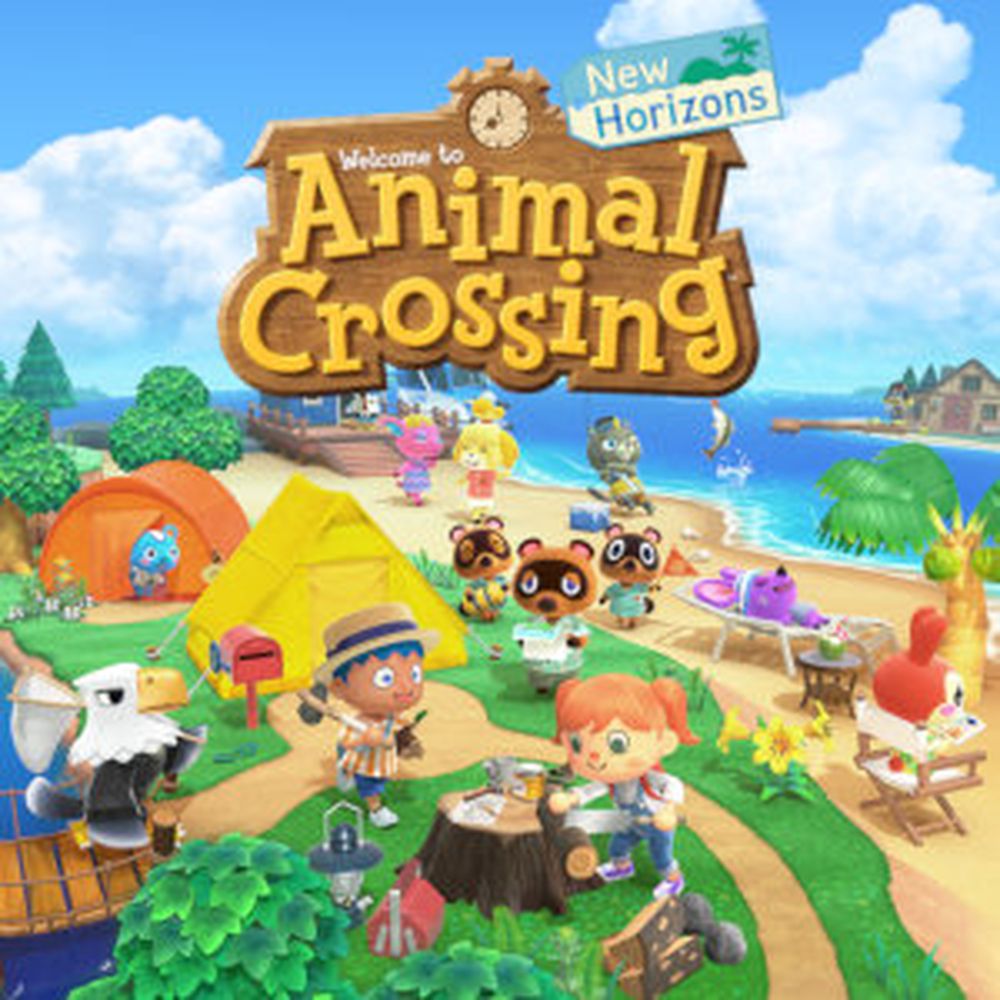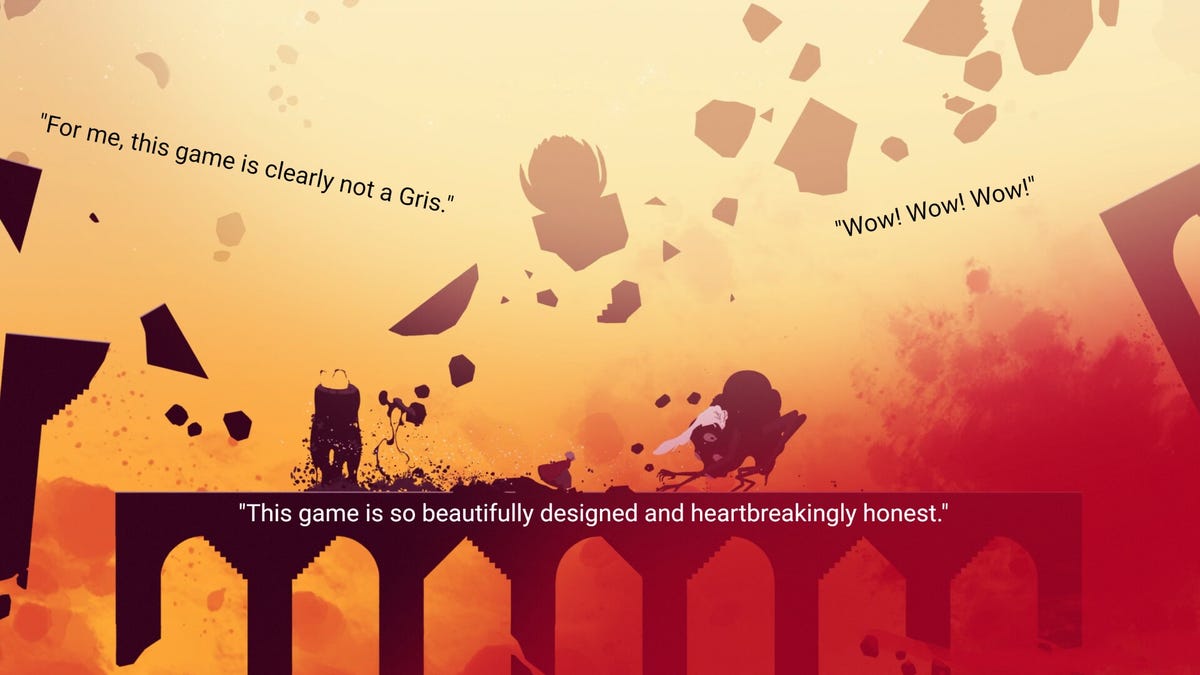Christina Lau spent well over 200 hours working on her Animal Crossing: New Horizons island. She rebuilt majestic mountain ranges again and again. She made her island a New York-style city, then a pastel-colored cotton candy garden. She time-traveled for maximum efficiency, crafted hundreds of fish bait so she could catch rare fish like the elusive Stringfish, and paid off all of her loans with millions of Bells to spare.
But she still wasn’t happy. One night, she was struggling to get a cliff to round off just right. After 10 minutes, she told Polygon, she started to “uncontrollably bawl.” So she decided to reset her game and start all over again.
Animal Crossing: New Horizons is a light social simulator. The player takes the role of a visitor arriving on a new island to build a home. In the process of building up their home, the player character can make friends with adorable animal neighbors, change their island to make it prettier (or uglier, if that’s what you’re into), and buy cute clothes. It’s one of the most low-pressure tend-and-befriend games available; it has the social elements and structure of an MMO, but none of the typical pressures. There are no gear stats or DPS caps, and the most demanding reflex-based challenge is nailing the timing to catch a fish.
But for some players, the pressure of inhabiting such a customizable world still gets to them.
:no_upscale()/cdn.vox-cdn.com/uploads/chorus_asset/file/19980873/CGwYuOk__1_.png)
Image: Nintendo EPD/Nintendo via Polygon
“It was way too much, which is silly because it’s a game where you hang out with sheep and plant flowers,” Lau told Polygon over Twitter direct messages. “But I hated everything I was building. I missed the early days where I just had to worry about planting trees and finding new villagers.”
That’s why Lau restarted her entire game. She has just unlocked the museum, and she has a good feeling about her second attempt. And she’s not alone — other New Horizons fans are starting from scratch, and burning dozens or even hundreds of hours in the process.
Keeping up with the Twitters
Kaitlyn Molinas went hard on New Horizons right out of the gate, logging 240 hours in her first town. She had tons of clothes and most of the seasonal recipes for cherry blossoms and Easter eggs, and she had terraformed her island multiple times.
“My ideas that I tried never felt cute, especially compared to images I’d see on Twitter, and it made the game very stressful to play, and see people talking about constantly online,” she told Polygon. “I ended up feeling like wanting to go back and play New Leaf, as that game was just, always chill, due in part to not being able to tear everything up and decorate whatever.”
New Horizons player Emily Rand also felt social media hang over her efforts to spruce up her island. She admits that she often takes an initial swing at a game before returning to finish it on a second try. Playing at launch was a mixed bag for her. “(It) was cool to be a part of the original rush, but there’s always a weird pressure about it too,” she told Polygon. “I’m also like this about anime when it airs. I want to be a part of the conversation, but there’s pressure in that too.”
Rand and Molinas both sunk a lot of time into their islands at launch, but the pressure of expectations — as well as the weight of making a perfect island — increased as beautiful decor and clever layouts went viral across social media. It all eventually got to them. They both restarted their games, and found their next attempt much more low-key.
“Not getting to experience the first few weeks of New Horizons normally, initially, was another motivation to reset,” said Molinas, who had time-traveled past any barrier the early game put in her path. “I don’t regret my choice!”
:no_upscale()/cdn.vox-cdn.com/uploads/chorus_asset/file/19980895/zdNyHh9.png)
Image: Nintendo EPD/Nintendo via Polygon
Being kind to yourself
New Horizons also landed at a strange time. Many players, including Lau, are in quarantine or lockdown. With their movement restricted and their social lives shut down, they found solace in Animal Crossing while other parts of their lives were tumultuous.
Jenny Huls had sunk over 300 hours into New Leaf, so she was thrilled with New Horizons and its improvements. She was in self-isolation, working from home, and dealing with an impending tragedy. “I had a very sick cat, Charlie, who was the love of my life, and I would just lie on my couch with him on my belly, playing Animal Crossing after work, on lunch breaks, the entire weekend …”
Nine days after the release of the game, Charlie died. A few days after that, on April 2, Huls accidentally knocked a full tumbler of water onto her Switch. Despite taking immediate action, she was unable to save the Switch from catastrophic water damage — and it took her New Horizons
Huls was determined to “live with (her) mistakes” and not buy herself a new Switch, even though friends offered her loans or help. It wasn’t until a phone call with her mom, who asked why her daughter was punishing herself so much for a mistake. “My plan had been to just wallow in isolation and grief, so I’m grateful to her,” Huls says. She picked up a new Switch Lite and got back into New Horizons. Her island was reborn after personal hardship, and she’s since doubled the amount of time she put into her original save (and earned five stars in the process).
“I miss some of my original islanders (Maple :C) and I still feel like an idiot, but my story is defined by kindness,” she said. “Like the friends who offered their own consoles and dropped off resources to help me restart, my mom encouraging to have compassion for myself, and a gentle little game to take my mind off grieving for Charlie.”
Lau is another player who understands that sense of relief and compassion. She spent a few days actively reaching out to friends and recharging with simple, social games over Discord, then started a new island.
“I truly believe that the hours I put into New Horizons is the only thing that kept me going through self-isolation and fear,” said Lau. “But restarting was also self-care. It was important that I had a space in which I had total control. Now that I’m back to just a one-room house and a few neighbors, I feel much more at peace.”

Vox Media has affiliate partnerships. These do not influence editorial content, though Vox Media may earn commissions for products purchased via affiliate links. For more information, see our ethics policy.








